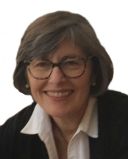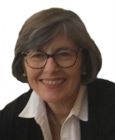Sexual Abuse
How Public Events Aid or Abet Healing Wounds of Sexual Abuse
What three powerful examples can teach us, if we let them.
Posted December 1, 2018
Three large public events held this year are worthy of our attention because they affect our collective experiences of acknowledging, understanding, and repairing the damage caused by sexual violation. One occurred during the General Convention of the Episcopal Church, another during the 2018 ESPY Awards for athletes, and the third during the testimonies of Dr. Christine Blasey Ford and Judge Brett Kavanaugh before the Senate Judiciary Committee. As stated by Mary Gail Frawley O'Dea in her book Perversion of Power: "Throughout history, the most common response to the suspicion or even the disclosure of sexual abuse has been denial and dissociation. Elective blindness, deafness, and muteness are reactions endemic to many people confronted by a victimized child, an adult survivor, or a perpetrating adult. To the extent that sexual victimization of a minor depends upon the silence of adults who knew, suspected, or should have known about the abuse, then, the burdens of shame and guilt reach beyond the individual abuser."
Every three years the Episcopal Church in the United States holds a meeting known as the General Convention, which is the bicameral governing body of the Church. It's comprised of the House of Bishops, with upward of 200 active and retired bishops, and the House of Deputies, with clergy and lay deputies elected from each diocese of the three regional areas of the Church. This year's General Convention was held in July, and beforehand, in response to the #MeToo movement, the House of Bishops, in an open letter to the Episcopal Church, extended an invitation to share reflections on sexual harassment, abuse, and exploitation. Their intent was to create a special listening session during the Convention, a sacred space for listening to the sharings, for reflection, and for examining the Church's handling or mishandling of cases of sexual harassment, exploitation, and trust.
This solemn process was live streamed on the internet at the beginning of the Convention. My husband and I watched, as Presiding Bishop Michael Curry and Bishop Mary Gray-Reeves, Vice-President of the House of Bishops, lead the process. It was deeply moving. Having been a therapist for over three decades, a member of various Catholic and Episcopal churches from time to time, having worked in a pastoral counseling agency, and being a sexual abuse survivor myself, I understand the healing value of giving voice to the experience of sexual violation and trauma, and of having the supportive response of a caring community. The caring essence of the community at the Convention was palpable, and I hope that the clergy and staff of every church has continued to care enough to act on these matters without delay. Heretofore so many in church settings have abdicated their pastoral responsibilities. It's time for that to change. It's time to learn and understand the dynamics of sexual harassment and abuse and to develop a culture of healing past wounds and preventing future sexual violations. The Convention's listening space made that perfectly clear.
ABC's broadcast of the 26th Annual ESPY Sports Awards last summer is a stellar example of the power of a large public event to promote the healing of survivors. Jennifer Garner gave a moving introduction about the USA Gymnastics and Michigan State University athletes who claimed they were sexually abused. Aly Raisman, Jordyn Wieber, Sarah Klein, and Jamie Dantzcher spoke on behalf of the 141 young women, about the abuse the USA Gymnastics team endured at the hands of their team doctor Larry Nassar. As quoted in Julie Miller's July 18 Vanity Fair article Sarah Klein, the first known gymnast to be abused by Nassar, said this to the audience: "Make no mistake, we are here on this stage to present an image for the world to see, a portrait of survival, a new vision of courage...telling our stories of abuse over and over in graphic detail is not easy. We're sacrificing privacy, we're being judged and scrutinized, and it's grueling and it's painful but it is time. We must start caring about children's safety more than we care about adults' reputations." And then millions watched on TV as they received the much-deserved Arthur Ashe Courage Award. Described in the Representation Project's July 20 blog, the audience rose to their feet in a collective acknowledgment that never again could the sports world prioritize the reputation of a powerful man over the safety of another human being. "It spoke to what is possible when we as a collective society say 'no more' to those who exploit and take advantage of our nation's most vulnerable," and it thus provided the beginning of a collective healing.
The ESPY production staff, who were obviously and commendably dedicated to the well-being of these athletes, reached out early to Pathways to Safety International www.pathwaystosafety.org, asking them for guidance on language for the press release, script, and overall approach in how best to serve the survivors receiving the award. They then secured Peace Over Violence www.peaceoverviolence.org to provide crisis counselors on site for the rehearsal. These counselors were also available both overnight, and for the day of the show. They even secured therapy dogs for the group for both days.
In contrast, I often think of what a missed opportunity the Judiciary Committee hearings regarding Dr. Christine Blasey Ford's allegations of attempted rape by Judge Brett Kavanaugh when they were teenagers were. Except for the manipulations of politics, this event could have been planned in concert with the wisdom garnered by Professor Anita Hill as a result of her experiences in 1991 when she testified that Supreme Court nominee Clarence Thomas had sexually harassed her. Professor Hill's recommendations made sense to me. As reported in a September 27 article at cbsnews.com, she advised that enough time be taken for a thorough investigation by a neutral party and that experts on sexual assault be brought in, to give input to the Senate as the investigation proceeded. I would have added to that recommendation that specialists in the effects of alcohol on mind, mood and behavior be brought in as well, in order to educate the Senate and the general public. But as it turned out Ford and Kavanaugh were instructed instead to proceed with their independent testimonies within a short period of time - much too short for comprehensive investigations to be carried out. Dr. Hill felt, and I agree with her, that the way it was handled was a disservice to both Dr. Ford and Judge Kavanaugh and to everyone else concerned, including the courts and the many American people who wanted to understand the dynamics.
In Dr. Hill's view, the #MeToo movement has the potential to change the way Americans deal with sexual misconduct in the future but it would mean that they would have to cast away their stereotypical view of abusers and their attachment to simple solutions. Instead, they'd have to deal with the hard questions. What questions? Roberta Dolan, author of Say it Out Loud: Revealing and Healing the Scars of Sexual Abuse, listed quite a few in her recent blog entitled What the #MeToo Movement is Missing, posted at www.elephantjournal.com. "Who is explaining to the general public the horrible consequences of sexual abuse?" she asks, for example. "Where are the experts explaining the difficult concept of repressed memories or the debilitating pressure to keep the abuse a secret?" She goes on to express disappointment in the media because of their lack of initiative in answering these questions and more, like where can survivors who get triggered by related news items get help? I think she has a very good point; there's a crying need for televised answers to these questions.
Each of these three events I've described for you were developed as an outgrowth of the #MeToo movement, and each has presented us with lessons to learn. Let's take them to heart and let them inform our present and future work.
______________________________________________________________
I dedicate this blog with respect and gratitude, to Dr. Christine Blasey-Ford for her courage and dedication to civic duty, and to Tarana Burke, the originator of the "Me Too" movement in 2006, who has been a sexual abuse and assault silence breaker and activist for social justice for many years.
References
Frawley-O'Dea, Mary Gail (2007). Perversion of Power: Sexual Abuse in the Catholic Church. Nashville, TN: Vanderbilt University Press, p.31.


